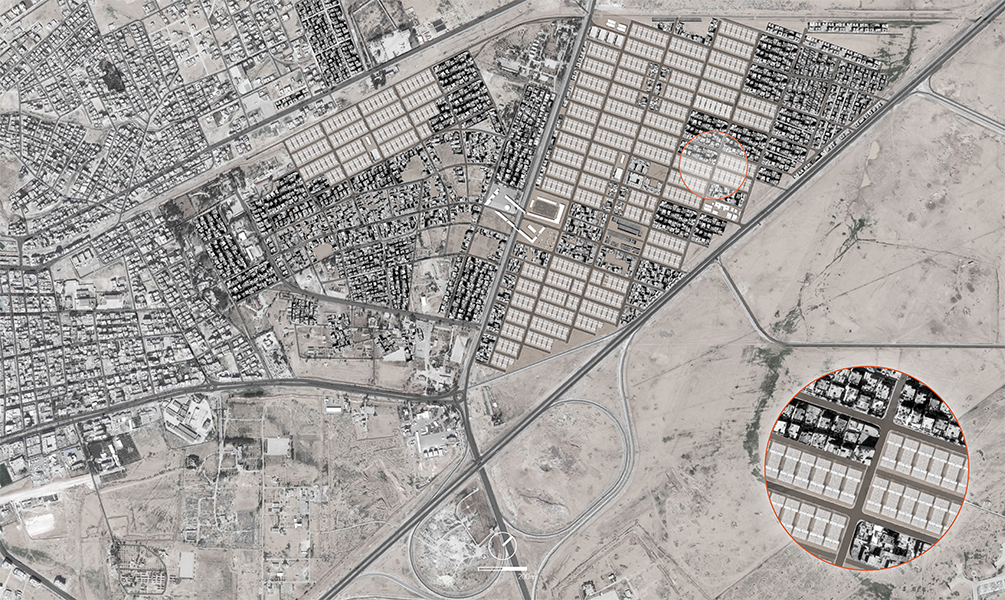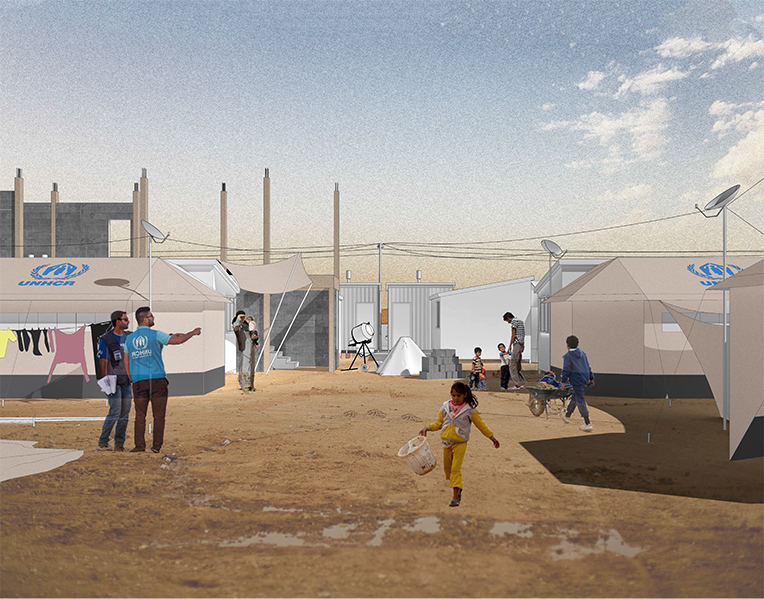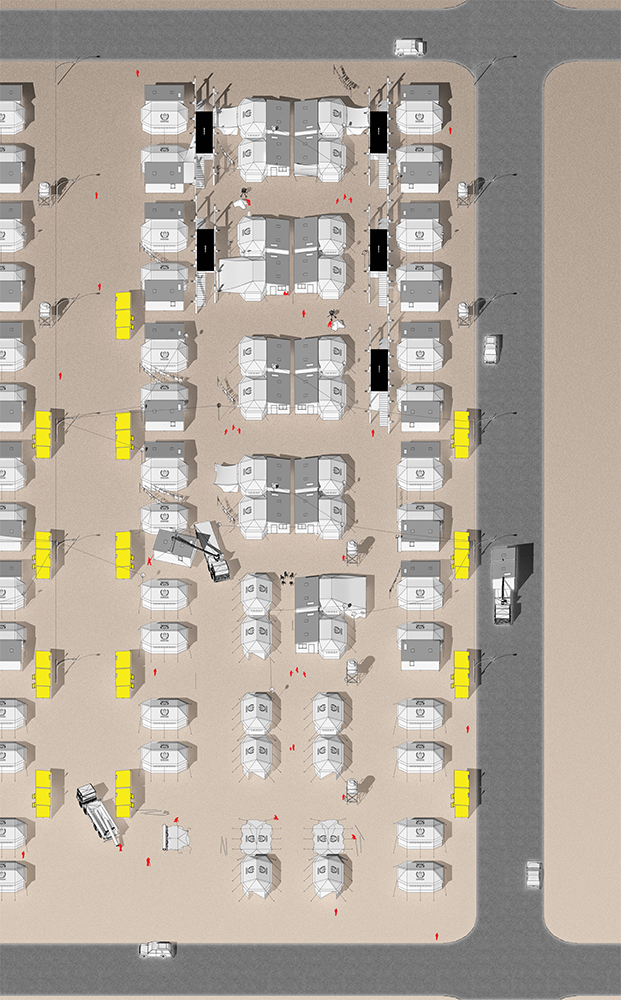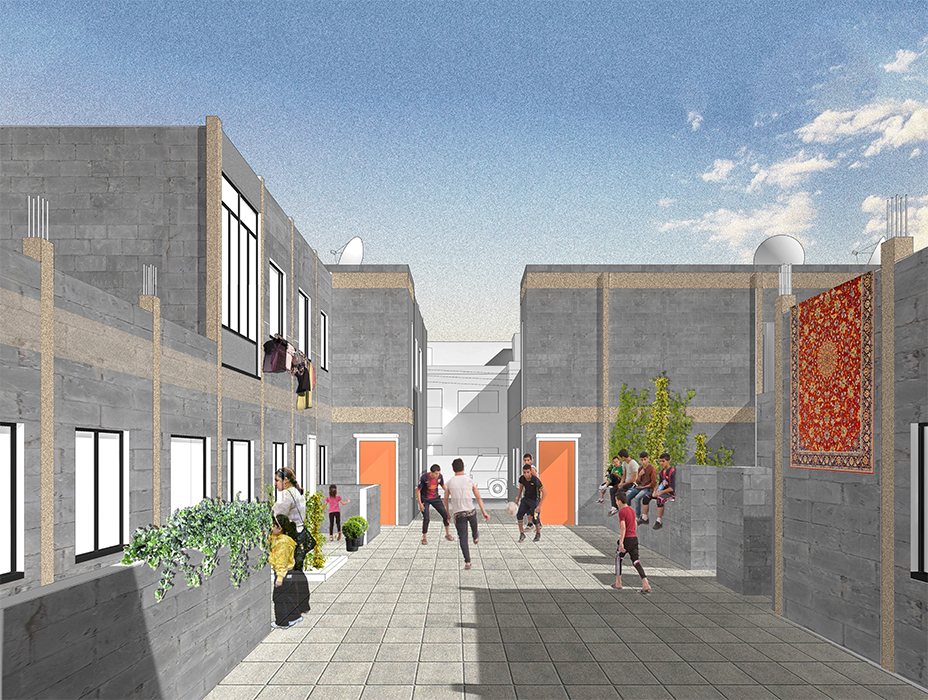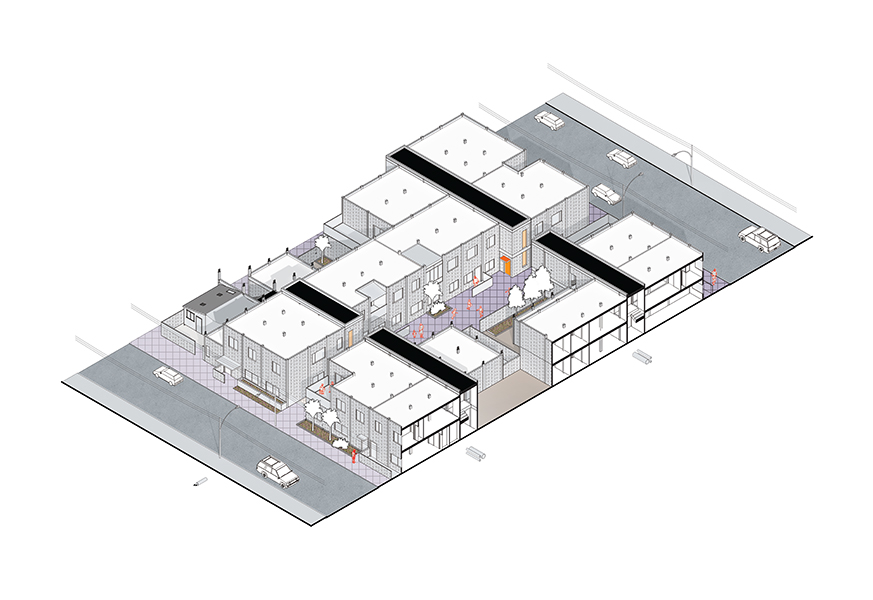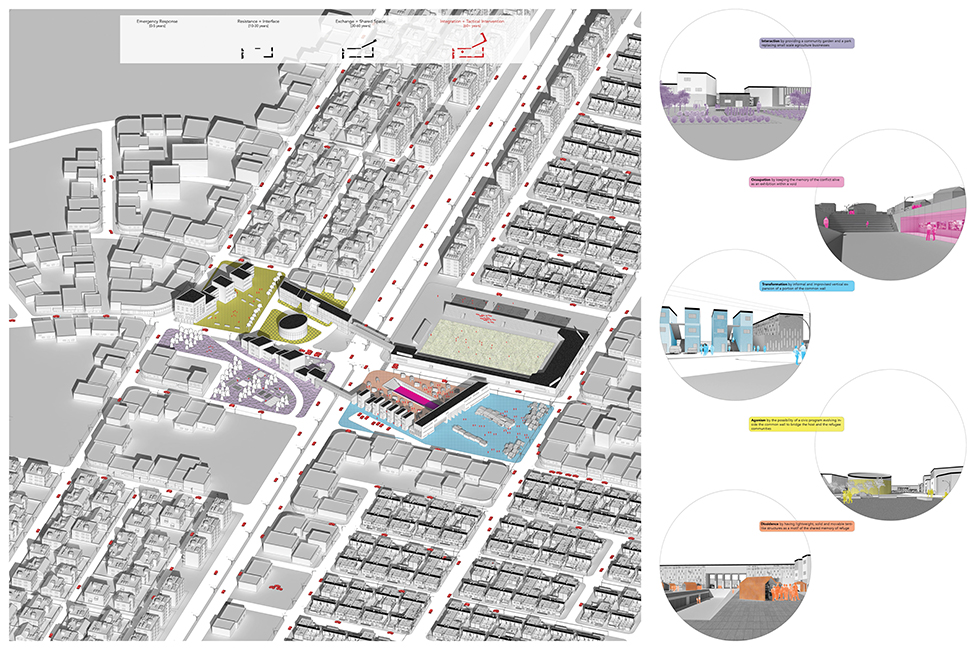MArch Thesis
Semipermanence: a case for an incremental design of refugee camps
The world is currently experiencing the highest levels of displacement on record, with 21.3 million refugees. The alarming increase in refugees in the last five years demands an investigation of the urban and spatial status of refugee camps. Modern refugee camps exist for an average of 17 years, but most of them are now becoming permanent cities, which calls into question the notion of them being “temporary settlements”.
The quick-relief, militaristic, and temporary approaches in designing refugee camps fail in addressing the complexities of the rapidly developing ‘city’. Their treatment as isolated islands in a contextual vacuum fails to acknowledge the rich urban and architectural qualities they possess.
This thesis project proposes an integrative and a strategized framework for designing a refugee camp in the Middle East based on three scales ranging from the architectural to the urban. The project attempts to design for permanence without the use of permanent actions.


